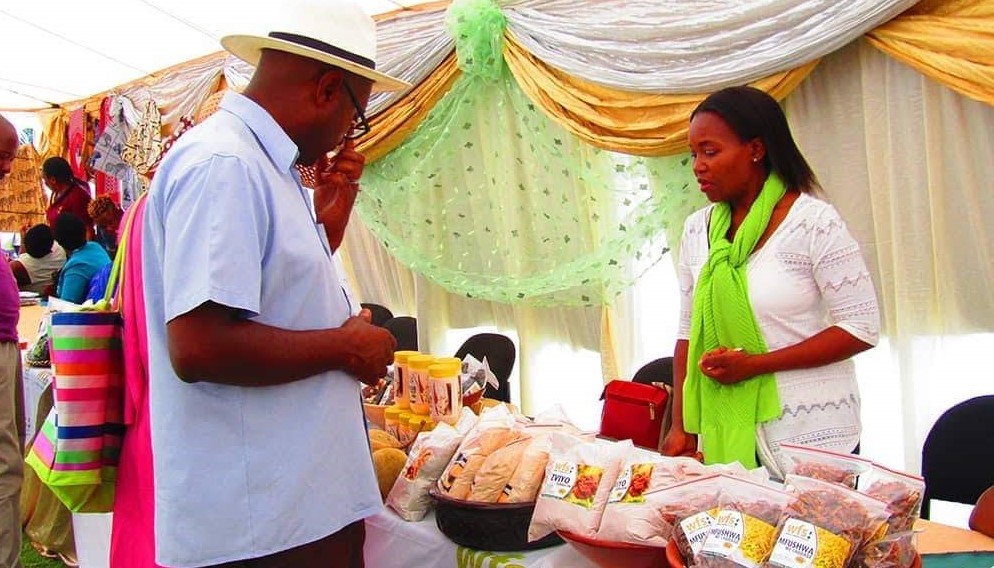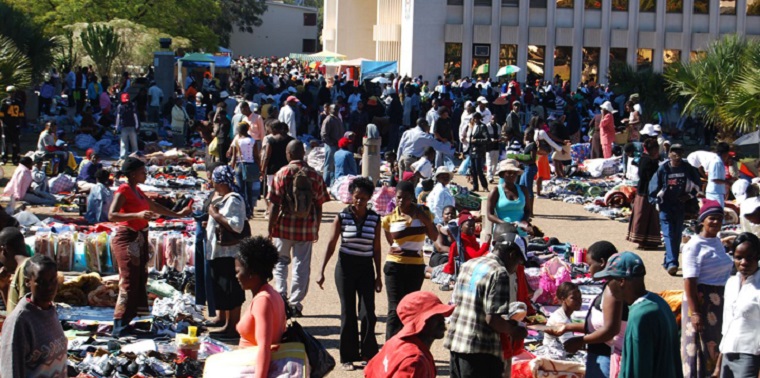PUSHED by the under-representation of women in the agricultural sector where only 10 percent own land yet 60 percent of them are labourers in the sector, Tsitsi Machingauta formed the Women Farming Syndicate (WFS) to empower women.
The social enterprise seeks to offer women an equal and equitable access to resources in order to help them scale up and be competitive on the local, regional and international market. To date, over 5000 women have benefitted through capacity building, access to funding and access to new local and international markets.

“The Women’s Farming Syndicate (WFS) was established in 2011, with the aim of creating an enabling environment for women in agriculture, and we have since established a brand to sell our products collectively,” Tsitsi told The Entrepreneurial Magazine.
“It’s been a rough and bumpy road, but we have managed to remain relevant and continued to push the agenda of women forward. We were the first ever group from Zimbabwe to go to UNESCO head office in Paris to showcase and promote our products and those of the women that we work with in different communities.
“In 2016, we established a woman showcase market to link women to markets, develop strategic partnerships for growth and affordable funding, and we have also developed a products range of value-added produce, which includes, wild harvested fruits, vegetables, teas, herbs and tubers.”
Tsitsi revealed that through the WFS brand, women have been able to export their products, reaping the maximum benefits of agriculture.
“Through our support, over 200 women led businesses have managed to grow and upscale through the showcase market and developed new partnerships,” she added.
“In 2017, we partnered with Longchen Plaza to establish a weekly SME market which ran for 18 months at which 80 percent of participants were earning an average of USD$300 per week and the participants managed to set up their own offices, workshops, and expanded their product range.”
An award-winning farmer in her own right, Tsitsi pointed out that WFS works and welcomes women from various communities with different cultural backgrounds in an effort to make a lasting mark in the agricultural sector.
“The women in agriculture that we work with come from various communities including, Sanyati, Buhera, Chimanimani, Epworth, Domboshava, Gutu, Beitbridge and Bulawayo. Our target market is local shops, restaurants, hotels and international super markets,” she said.
“Growing up in a grounded environment, I used to visit my rural home in Gutu (Masvingo) every holiday where l fell in love with farming and noticed the great challenges that were being faced by women and girls in rural areas.
“Growing up in Masvingo and Harare showed me the great paradigm difference between urban and rural life, each having its own pros and cons. This upbringing helped me to develop a passion for helping women to use the resources they have and utilise traditional knowledge systems.”
Now based in Domboshava, the mother of three recalled how she started off her farming career in a backyard in Marlborough and steadily rose up the ladder to being a decorated best sugar cane and innovative production farmer by the Zimbabwe Young Farmers.
“I started in a back yard in Marlborough, where I grew a few vegetables and also started to breed broiler chickens to raise capital to kick start the organization (WFS),” she said.
“Years down the line, we have managed to obtain a five-acre plot in Domboshava, to establish our skills training centre and processing plant.
“To date, we have successfully built our offices and we are still raising funds to build a cold chain facility.”
Tsitsi acknowledged that the ravages of Covid-19 lockdown left them scathed. The organization encountered challenges in getting produce to the market which resulted in post-harvest losses.
“We currently don’t have agro-processing facilities in all areas hence the need to develop our capacity to establish these processing centres in every community that we work in,” she said.
This article was first published the December Issue of The Entrepreneurial Magazine







